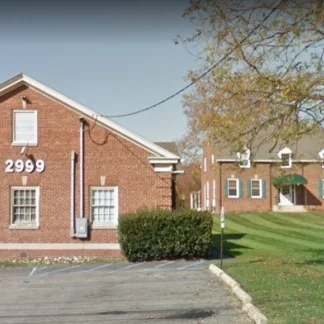TRIAD Addiction Recovery Services
TRIAD Addiction Recovery Services is an independent non-profit addiction counsel...
Claymont Treatment Center is a private rehab located in Claymont, Delaware. Claymont Treatment Center specializes in the treatment of alcoholism, drug addiction, dual diagnosis, opioid addiction, and substance abuse.
Contact us for more information: (302) 792-0700

Connect with Claymont Treatment Center by calling their admissions team directly.
(302) 792-0700 Website Get DirectionsThe Substance Abuse and Mental Health Services Administration (SAMHSA) is a branch of the U.S. Department of Health and Human Services. Established in 1992 by congress, SAMHSA's mission is to reduce the impact of substance abuse and mental illness on American's communities.
SAMHSA Listed: Yes
Group therapy is any therapeutic work that happens in a group (not one-on-one). There are a number of different group therapy modalities, including support groups, experiential therapy, psycho-education, and more. Group therapy involves treatment as well as processing interaction between group members.
Trauma therapy addresses traumatic incidents from a client's past that are likely affecting their present-day experience. Trauma is often one of the primary triggers and potential causes of addiction, and can stem from child sexual abuse, domestic violence, having a parent with a mental illness, losing one or both parents at a young age, teenage or adult sexual assault, or any number of other factors. The purpose of trauma therapy is to allow a patient to process trauma and move through and past it, with the help of trained and compassionate mental health professionals.
Trauma therapy addresses traumatic incidents from a client's past that are likely affecting their present-day experience. Trauma is often one of the primary triggers and potential causes of addiction, and can stem from child sexual abuse, domestic violence, having a parent with a mental illness, losing one or both parents at a young age, teenage or adult sexual assault, or any number of other factors. The purpose of trauma therapy is to allow a patient to process trauma and move through and past it, with the help of trained and compassionate mental health professionals.
TRIAD Addiction Recovery Services is an independent non-profit addiction counsel...
Riverside Rehabilitation Department is a private rehab located in Wilmington, De...
Connections Counseling - W. St. Wilmington offers inpatient and outpatient treat...
Foulk Manor North is a private rehab located in Wilmington, Delaware. Foulk Mano...